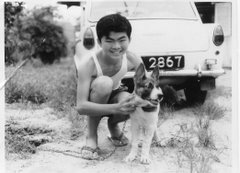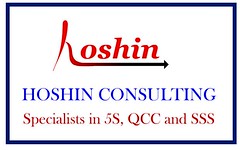Despite the fact that my mother was a Canadian, before coming to Singapore I had not been aware of cultural differences other than there being Scotsmen to the North of England and Welshmen somewhere out to the west. Other than in films I had never seen anybody with a different skin colour. Now here we were in Singapore with many different skin colours. The darkest were the Tamil Indians with their very dark almost black skin tones. Chinese with their supposed hint of yellow was something that I could never really make out. Malays were a sort of golden brown, whilst we Europeans had a range of colours from pasty white to golden brown tans with degrees of pinkness or just plain blistered red if they had just arrived. My eyes had been opened to the rich tapestry of skin colours and facial characteristics.
One couldn’t help but be aware that several different languages were being spoken and in many cases the Asians around you spoke more than one language including English albeit sometimes badly. It didn’t take too long to get used to the meaning an Asian was trying to convey in his fractured English. We knew a few Asian people. The daughter of Keng Wah Heng, the local shopkeeper at Lloyd Leas was a frequent visitor to our house and when we moved to Tengah there were several boys from the nearby village who were members of the scout group. There were about three of them that I would class as more than just acquaintances, even friends. None of this seemed unusual to me. My mother being Canadian, we were brought up to be tolerant of other people whatever their colour or creed simply because she was aware of what it was like to be different. We never did manage to teach to say ALU MIN IUM it always came out ALUME A NUM. Similarly Tomatoes were TOMAYTOS.
Racial tolerance was not the norm in Singapore. An email conversation I had with David Dance a former head boy of Alexandra Grammar School, he was head boy whilst I was a spotty faced first year, hints at a racially intolerant society. “The Tanglin Club was for Burrah Sahibs, very colonial, very pukkha. We were not members; very few service people were, although I suppose the odd General might have been. Singapore at that time was a very snobbish place, and racism was rife. I never at any time in my six years there mixed socially with anyone but a white person and neither did my parents.” This is in complete contrast to my mixing with Ah Chew from the shop and the village members of the Scout troop. My own feeling is that what is described here is a denial of experiencing a rich cultural experience.
Racism was not confined to between the Brits and the Asians. One day a Chinese peddler was doing the rounds of the camp selling cloth. My mother invited him in to show what he had to sell. After seeing a lot of different materials my mother asked our amah to come in and help her decide which would be best for making a dress. The peddler immediately flew into a rage and said he was not going to stay in the same room as our amah, packed up and left without making a sale. He then went a made a complaint at the guard-room about my mother letting a Malay amah come into the same room as him. My father was called in by his senior officer and told that the complaint had been made and what did he have to say. His reply was “as the man was invited into our home to display his wares he did not have any right to complain about who was invited in to look at his wares”. He also added, “I now wish to make a formal complaint about the peddler’s abusive tirade in the presence of my family and staff”. That particular peddler never was allowed back onto the base ever again.
After we had been in Singapore some months we started to hear, “Merdeka Merdeka Merdeka” on Radio Malaya about every half hour. This was during the lead up to Malaya gaining independence from Britain. Following Malaya gaining independence, Singapore remained as a British colony until preparations were complete for independence to be granted. For some people, independence for Singapore was not coming quickly enough. There were riots in the city and some service families made preparations to leave and go home. For us living in Changi at the time, we saw absolutely nothing of the disturbances except that for about two weeks there was an armed guard front and back on the gari taking us to and from School each morning. Our family decision was that it seemed to be centred in the city and we wouldn’t even think of leaving.
My father also spent some of his time socially with members of the Singapore Regiment he came into contact with. He visited some of them at their homes and also had meals with them. Whenever we went to “The Islamic” restaurant on Beach Road, he always said that he would have preferred to have eaten downstairs rather than up in the posh restaurant upstairs. So although I put some of my racial tolerance down to my mother I think that a large measure also came from my father. I also feel that it allowed me to gain much more experience from life than if I had been a racist bigot.
My youngest son is now going out with a Japanese girl and I know that some families in the UK would be horrified. My own feelings are pleasurable ones, I am pleased that my son is going out with a truly nice girl and that he is gaining a wonderful cultural insight into the Japanese way of life. He has paid two visits to Japan with her and visited her parents. In some ways I think that my love of Asia has rubbed off onto him.
Seiso is Cleaning (1) – The Importance of Seiso
-
The third ‘S’ in 5S is *Seiso*; and it simply means *Cleaning*.
*Example 1: Our beloved AR-15*
Many of us who have gone through NS (National Service) will ...





4 comments:
It might be the case that to see the world in different colors and experience the rich tapestry, you can't do it in our generation. Much that we might try, there's always a glass ceiling somewhere.
In the context of Singapore, there are similar trends very obvious but not spoken. The best is for our children to go outside the shores of Singapore or marry someone outside your own race/nationality and have a different mindset. I am not surprised by the initiatives taken by two of my best friends. They think and eat differently. They can hold a conversation beyond "What do you do for a living?"
One thing good though: the polarization between Whites and Singaporeans have blurred.
We have a very different Singapore society nowadays. In a positive way, it can be viewed as being racially and culturally tolerant too - while some local girls are more than willing to marry a foreigner, especially an Ang Moh (Westerner), our Chinese men (mostly middle-aged to elderly ones) are marrying women from China, Vietnam, Thailand and even Indonesia.
I hope I don't hurt anyone's feelings here. But I think, our parents' generation, perhaps due to lower education, tended to have more racially biased people, like the cloth peddlar that John mentioned. In fact I once met some folks who were so biased against Hakka's (one of the smaller Chinese dialect groups), that it totally shocked me.
If you were to study into the historical and cultural background of races or even clans, all have their strength and weaknesses. If people of different races or clans emphazise on each other weaknesses, then this world would not have a day of peace. I remember having a dialogue with one of my former bosses. He remarked: "Do you know why the British can control us for 200 years ? It is not for nothing ..." How-come ? Why? Another question - Why did the British colonial government always sent a Cantonese speaking governor to Hong Kong whenever the need arose ? In short, the British knew thoroughly over the subjects they ruled, like the backs of their palms. Why do Hongkongers wept when Governor Patton and his family left the island in 1997 ? and Singapore panicked in 1971 when the forces said goodbye ? The only exception is - The British gradly left without regret and fan-fare in 1948, from a land called Palestine.
Post a Comment